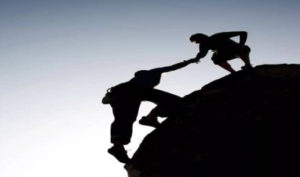Understanding Effective Mechanisms of Dealing with Shame.

Understanding Effective Mechanisms of Dealing with Shame.
- Shame is the intensely painful feeling or experience of believing we are flawed and therefore unworthy of love and belonging.
- We all have it.
- Shame is universal and one of the most primitive human emotions.
- The only people who don’t experience shame lack the capacity for empathy and human connection.
- We’re all afraid to talk about shame.
- The less we talk about shame, the more control it has over our lives.
- Shame is the fear of being unlovable it’s the opposite of owning our story and feeling worthy.
- Shame keeps worthiness away by convincing us that owning our stories will lead to people thinking less of us.
Shame is all about fear.
We’re afraid that people won’t like us if they know the truth about who we are, where we come from, what we believe, how much we’re struggling, or, believe it or not, how wonderful we are when soaring (sometimes it’s just as hard to own our strengths as our struggles).
-
Also read: WHY CHOOSE COMMITMENT WHEN IN DOUBT.
People often want to believe that shame is reserved for the folks who have survived terrible traumas, but this is not true.
Shame is something we all experience.
And while it feels as if shame hides in our darkest corners, it tends to lurk in all of the familiar places, including appearance and body image, family, parenting, money and work, health, addiction, sex, aging, and religion.
To feel shame is to be human.
The stories of our struggles are difficult for everyone to own, and if we’ve worked hard to make sure everything looks “just right” on the outside, the stakes are high when it comes to truth-telling.
This is why shame loves perfectionists it’s so easy to keep us quiet.
In addition to the fear of disappointing people or pushing them away with our stories, we’re also afraid that if we tell our stories, the weight of a single experience will collapse upon us.
There is a real fear that we can be buried or defined by an experience that, in reality, is only a sliver of who we are.
If shame is the universal fear of being unworthy of love and belonging, and if all people have an irreducible and innate need to experience love and belonging, it’s easy to see why shame is often referred to as “the master emotion.”
We don’t have to experience shame to be paralyzed by it the fear of being perceived as unworthy is enough to force us to silence our stories.
And if we all have shame, the good news is that we’re all capable of developing shame resilience.
Shame resilience is the ability to recognize shame, to move through it constructively while maintaining worthiness and authenticity, and ultimately develop more courage, compassion, and connection as a result of our experience.
The first thing we need to understand about shame resilience is that the less we talk about shame, the more we have it.
-
Also read: THE WRONG KIND OF FEAR
Shame needs three things to grow out of control in our lives:
- secrecy,
- silence,
- and judgment.
When something shaming happens and we keep it locked up, it festers and grows.
It consumes us.
We need to share our experience.
Shame happens between people, and it heals between people.
If we can find someone who has earned the right to hear our story, we need to tell it.
Shame loses power when it is spoken.
After a decade of research, it is found that men and women with high levels of shame resilience share these four elements:
- They understand shame and recognize what messages and expectations trigger shame for
- They practice critical awareness by reality-checking the messages and expectations that tell us that being imperfect means being
- They reach out and share their stories with people they
- They speak shame they use the word shame; they talk about how they’re feeling, and they ask for what they need.
When it comes to understanding how we defend ourselves against shame;
According to Dr. Hartling, to deal with shame, some of us move away by withdrawing, hiding, silencing ourselves, and keeping secrets. Some of us move toward by seeking to appease and please.
Using shame on parents teaches children that they are not inherently worthy of love.
Most of us use all of these at different times with different folks for different reasons.
Yet all of these strategies move us away from our story.
Shame is about fear, blame, and disconnection.
The story is about worthiness and embracing the imperfections that bring us courage, compassion, and connection.
If we want to live fully, without the constant fear of not being enough, we have to own our story.
We also have to respond to shame in a way that doesn’t exacerbate our shame.
One way to do that is to recognize when we’re in shame so we can react with intention.
Shame is a full-contact emotion.
Men and women with high levels of shame resilience know when shame is happening.
The easiest way to know shame is to cultivate an awareness of our physical shame symptoms.
It’s important to know our symptoms so we can be deliberate in our response to shame.
When we’re in shame, we’re not fit for human consumption.
We need to get back on our emotional feet before we do, say, e-mail, or text something that we’ll regret.
Our stories are not meant for everyone.
Hearing them is a privilege, and we should always ask ourselves this before we share:
Who has earned the right to hear my story?”
If we have one or two people in our lives who can sit with us and hold space for our shame stories, and love us for our strengths and struggles, we are incredibly lucky.
If we have a friend, or a small group of friends, or family who embraces our imperfections, vulnerabilities, and power and fills us with a sense of belonging, we are incredibly lucky.
We don’t need love and belonging and story-catching from everyone in our lives, but we need it from at least one person.
If we have that one person or that small group of confidants, the best way to acknowledge these connections is to acknowledge our worthiness.
If we’re working toward relationships based on love, belonging, and story, we have to start in the same place.
What’s the difference between shame and guilt?
Shame is about who we are, and guilt is about our behaviors.
We feel guilty when we hold up something we’ve done or failed to do against the kind of person we want to be.
It’s an uncomfortable feeling, but one that’s helpful.
When we apologize for something, we’ve done, make amends to others, or change a behavior that we don’t feel good about, guilt is most often the motivator.
Guilt is just as powerful as shame, but its effect is often positive while shame often is destructive.
When we see people apologize, make amends, or replace negative behaviors with more positive ones, guilt is often the motivator, not shame.
And, some of us move against others by trying to gain power over others, by being aggressive, and by using shame to fight shame.
Again, it is human nature to want to feel worthy of love and belonging.
When we experience shame, we feel disconnected and desperate for worthiness.
Full of shame or the fear of shame, we are more likely to engage in self-destructive behaviors and to attack or shame others.
Shame is related to violence, aggression, depression, addiction, eating disorders, and bullying.
Children who use more shame self-talk (I am bad) versus guilt self-talk (I did something bad) struggle mightily with issues of self-worth and self-loathing.
Join Enlighten Knowledge WhatsApp platform.
Join Enlighten Knowledge Telegram platform.









I’ve recently started a blog, the info you offer on this site has helped me tremendously. Thank you for all of your time & work.
Just a smiling visitant here to share the love (:, btw outstanding pattern. “Better by far you should forget and smile than that you should remember and be sad.” by Christina Georgina Rossetti.